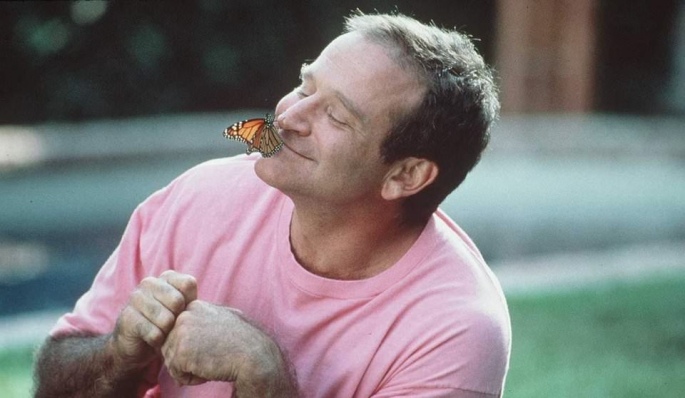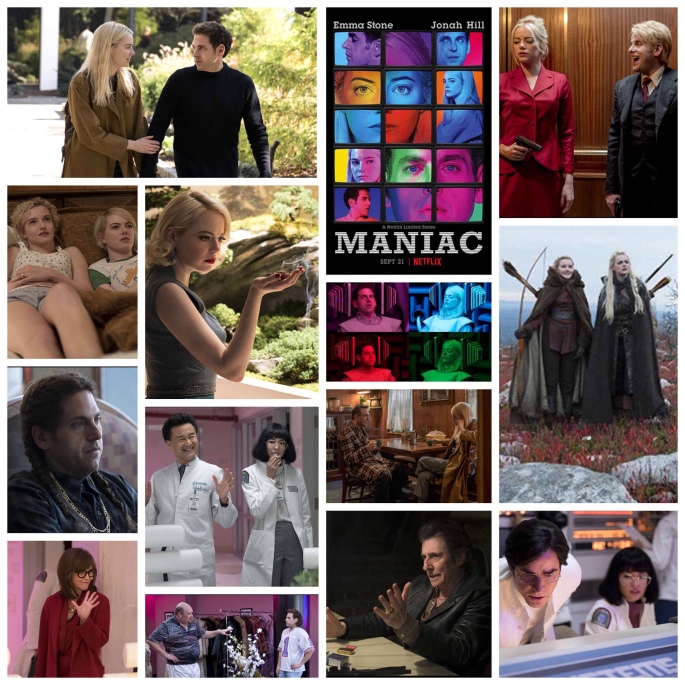Robin Williams left us five years ago this week, and out of all the celebrities, actors and entertainers who have passed on, his absence is still the one I feel most. So what made him so special? For me it was the way he could cut so deep in both serious and comic performances. When he showed up in the room the energy turned light and carefree as the zany, untethered forces of his improvisation and imagination took over like a gentle breeze. Then when it was time to rein it in for a more serious, introspective scene he would be less effervescent but the light in his eyes wouldn’t dim, the focus wouldn’t falter and he’d demonstrate his equally brilliant talent for heartbreaking drama as well. He could carry an entire film on his own, light up a supporting role and even make a cameo glimmer through to become memorable. In looking back I’d like to highlight the ten performances that are most personal, most memorable and mean the most to me as someone who grew up watching him on the TV all the time, idolized and loved him dearly. Enjoy!
10. Adrian Cronauer in Barry Levinson’s Good Morning Viet Nam
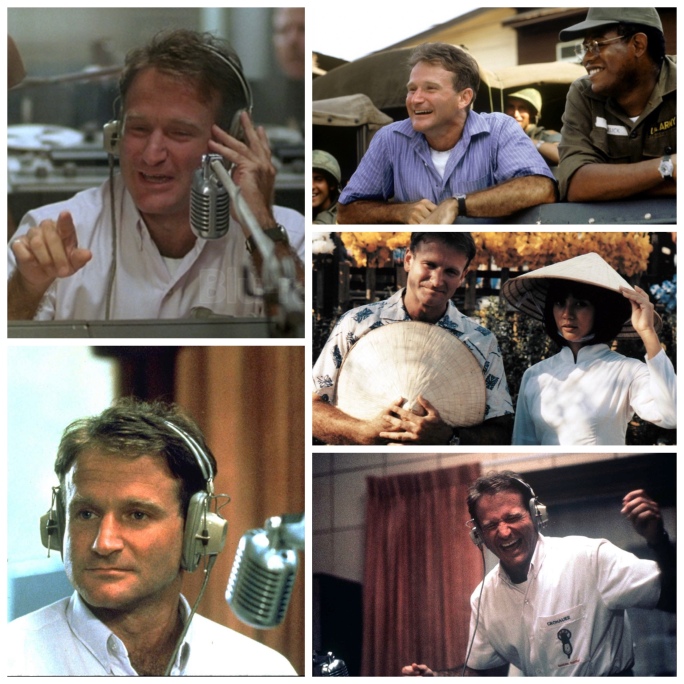
No other scenario requires a much needed sense of humour like the fog of war, but Williams’s rebellious spirit isn’t received well by the brass in Nam, yet he makes it clear that a good dose of verbal comedy is exactly what the airwaves need in this case. It’s a no holds barred performance with some touching emotional notes and plenty of slotted time to let loose behind a radio DJ’s mic.
9. Walter Finch in Christopher Nolan’s Insomnia
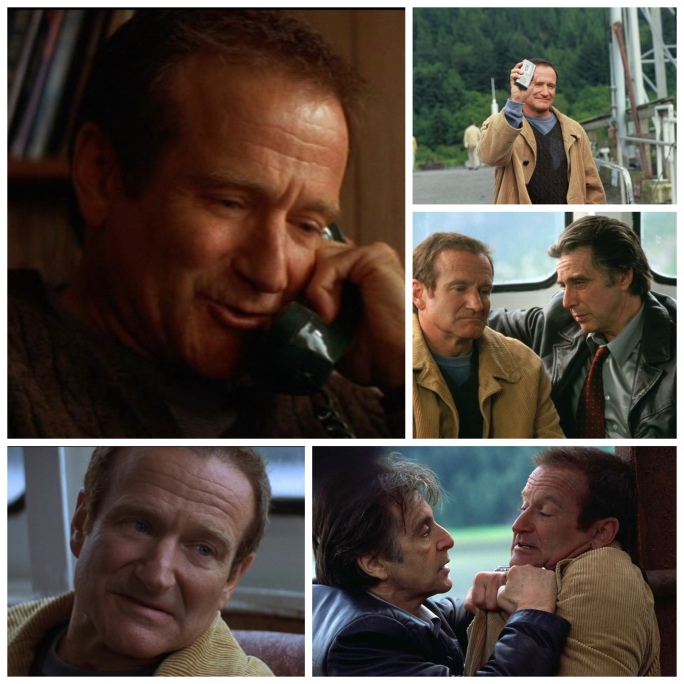
Cast against type as the freaky villain of Nolan’s chilly murder mystery, he channels a Stephen King style energy in playing a slippery antagonist set against Alaska’s grey skies and at odds with Al Pacino’s sharp but distraught homicide cop. Williams is somehow constantly likeable yet creepy in a way you can’t quite put your finger on until the third act rolls around and he really lets it rip.
8. Parry in Terry Gilliam’s The Fisher King
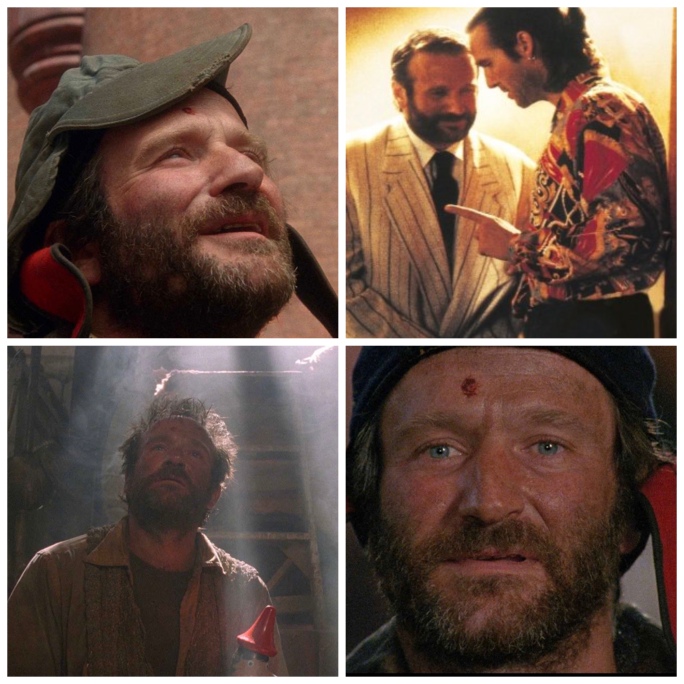
Mental illness gets a ballistic but tender portrayal in Gilliam’s urban fantasy that sees Robin as a former professor of medieval history who loses his mind following a tragedy. Surreal production design helps his work flow but the raw potency is all his in a performance that brings down the house, brings out the best in both Gilliam and Jeff Bridges and shows how a mind broken isn’t necessarily one lost forever.
7. The Genie in Disney’s Aladdin
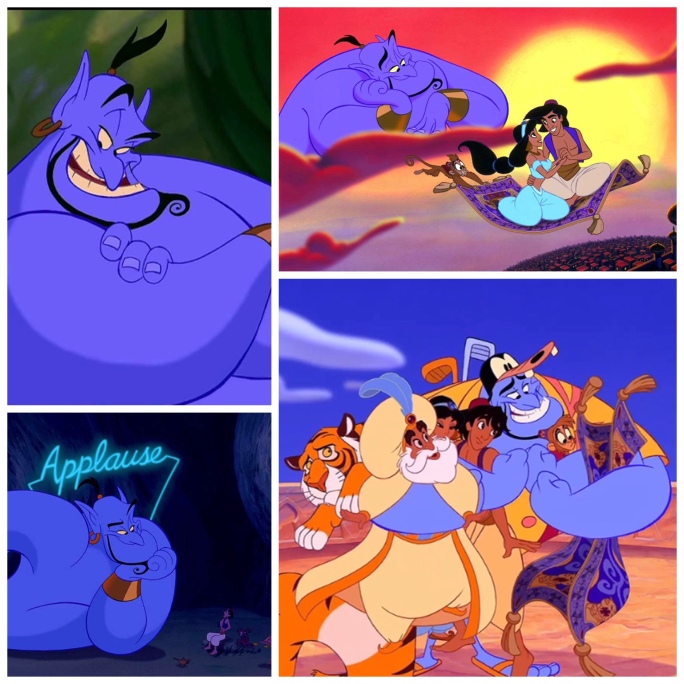
I’m pretty sure all of the Genie’s dialogue wasn’t even scripted off the bat, I think they just sat Williams down in front of a voiceover mic each morning, gave him a general outline and then slowly backed away out of the room to observe the magic happen. The result is a nostalgic blast of a vocal performance that so many hold dear and one of the most quotable Disney characters of all time.
6. Alan Parrish in Joe Johnston’s Jumanji
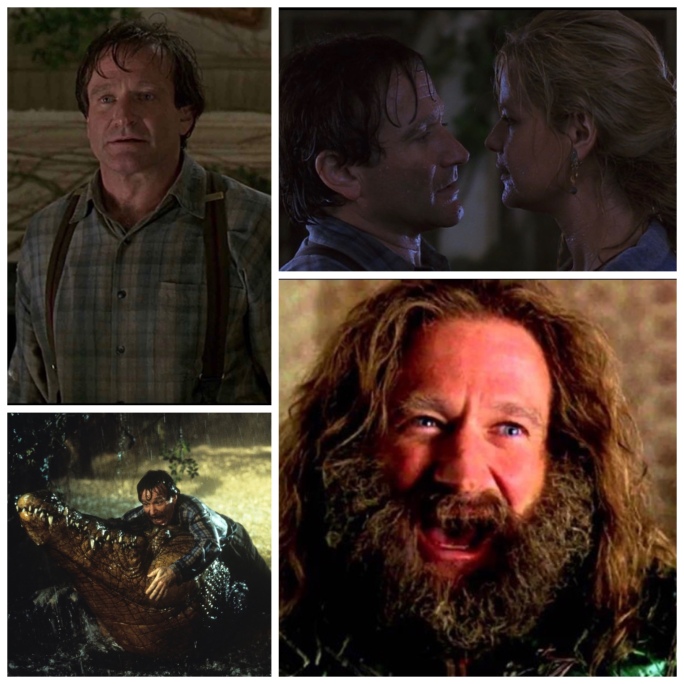
Infusing childlike wonder is something he was always good at, and it served well here in playing a guy who has been trapped inside a deadly jungle themed board game since he was a kid. His chemistry with Bonnie Hunt is funny and touching, his feral mania upon being finally released from the game into 90’s suburbia is hilarious and the interaction with young Kirsten Dunst and Bradley Pierce makes for a dynamic character that I always love to revisit.
5. Philip Brainard in Disney’s Flubber
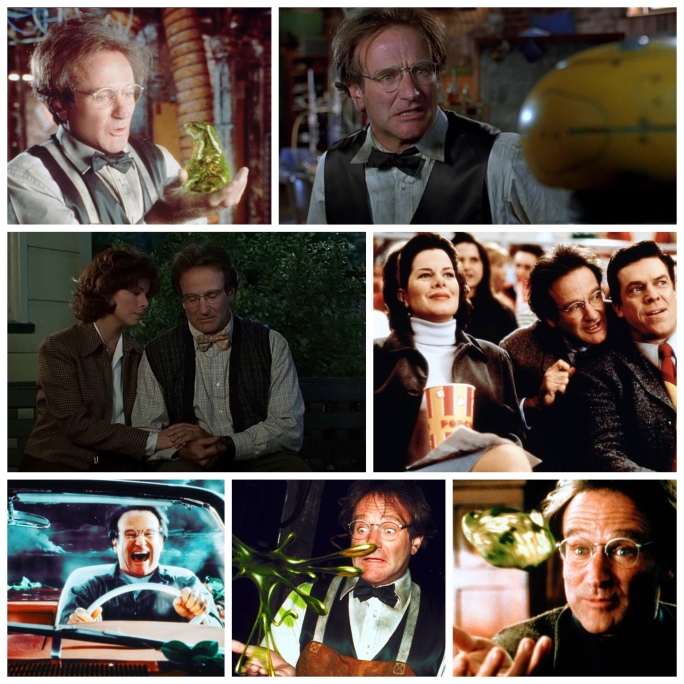
Williams plays an incarnation of the absent minded professor archetype in Disney’s unfairly dismissed comedy. In a film whose star is a rambunctious pile of ever morphing charismatic green goo, trust Williams to defy that description and upstage the Flubber itself with his own wild, inspired performance. But he also gets surprisingly deep when lamenting: “I’ve spent my whole life out there trying to figure how the world works when I should have been trying to figure out *why* it works..” it’s a disarming line to hear him intone in a heartfelt manner from a Disney film, but that’s why I love this one so much.
4. Sean Maguire in Gus Van Sant’s Good Will Hunting
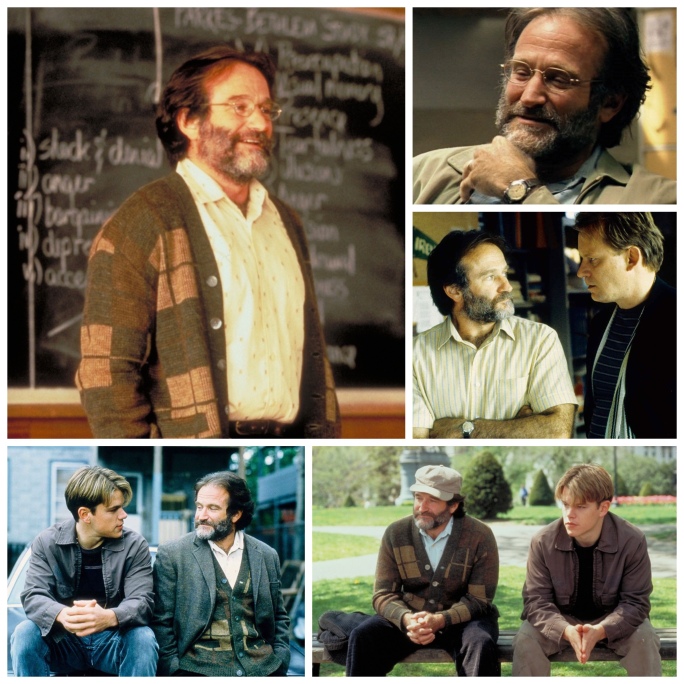
Mentor, friend and advisor to Matt Damon’s prodigal kid, Williams imparts wisdom in clear eyed fashion here as an extremely down to earth fellow faced with an extraordinary situation. His mid film monologue to Damon won him a best supporting Oscar, but the moment that captures this character’s spirit most beautifully is when he wistfully remembers his wife who passed away, and injects some humour into the conversation that was purely Robin’s improvisation and as a result hits the scene home.
3. Rainbow Randolph in Danny Devito’s Death To Smoochy
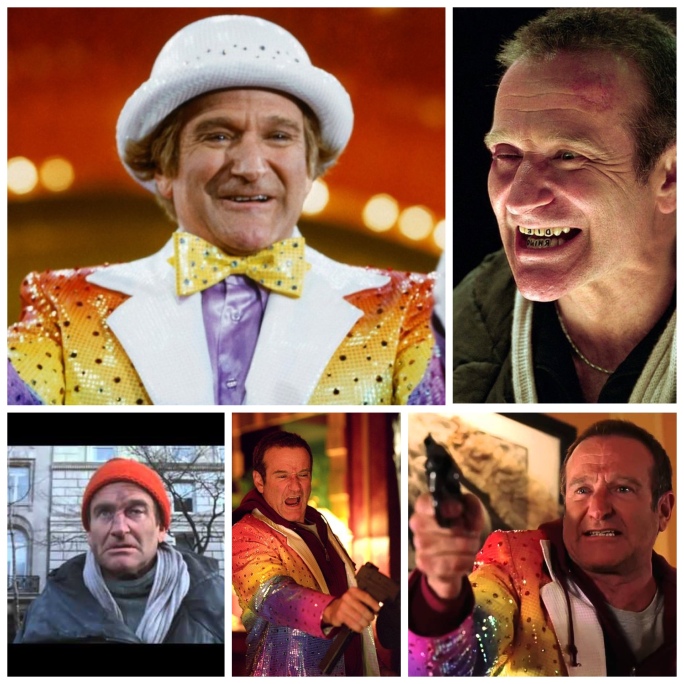
Devito’s venomous farce of children’s media is a criminally undervalued and quite terrific film, and Williams goes into full on nut-bar mode as a disgraced kiddie show host who never should have been let on the air to begin with. Trying to kill Edward Norton’s beloved rhino Smoochy in between bouts of rage, flagrant insecurity and maniacal mood swings, it’s an incredibly ballsy, thoroughly R rated and absolutely hysterical piece of black comedy performance art not to be missed.
2. Daniel Hillard/Mrs. Doubtfire in Chris Columbus’s Mrs. Doubtfire
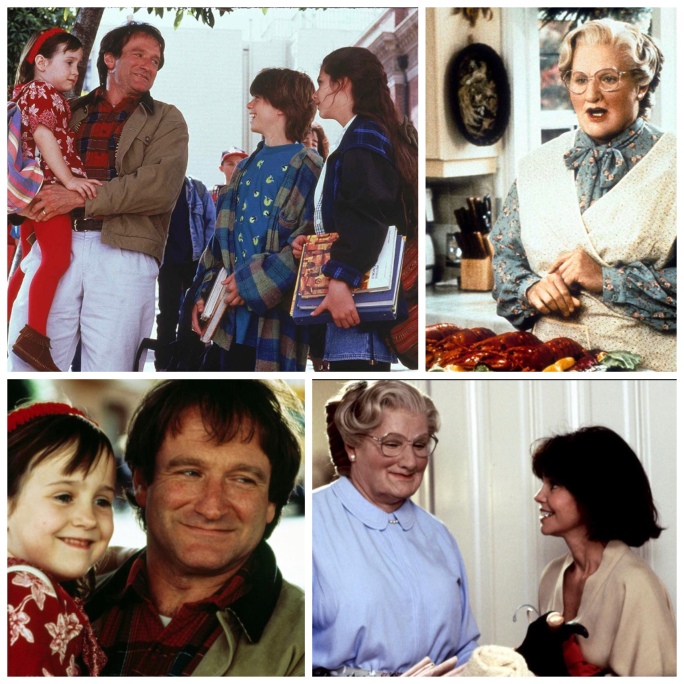
The lengths that loving father Williams goes to in order to see the children he lost custody of here would be horror movie material in any other actor’s hands, but because Robin was so adept at both wacky innovation, disguises and genuine heartfelt explanations for such behaviour, the result is both magical and realistic. The restaurant scene alone is time capsule worthy, in which Hillard has to multitask and hop in and out of the Mrs. Doubtfire suit rapid fire to both have a family dinner and entertain a scotch swilling TV exec (Robert Prosky).
1. Chris Nielsen in Vincent Ward’s What Dreams May Come
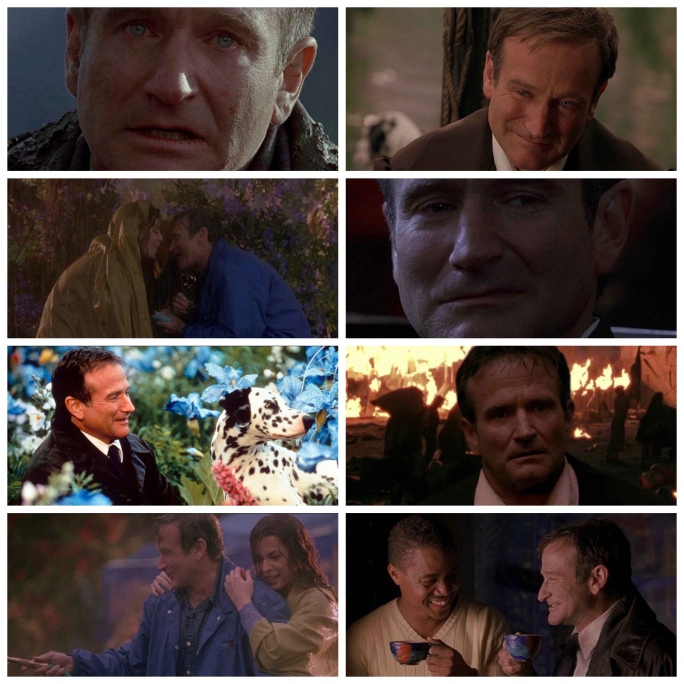
A gorgeous fantasy film showcases Robin in his most deeply felt and affecting performance as a man who has lost everything including his own life. He ventures out across the afterlife through heaven, hell and beyond to find his wife and soulmate (Annabella Sciorra) and save her. Williams portrays celestial determination like no other and a fierce, passionate love for her that shines like a beacon through realms of the astral plane and lights up the film in the process.
Thanks for reading! I hope you all enjoy and hold Robin’s work as dear as I do, and have enjoyed my thoughts here.
-Nate Hill
